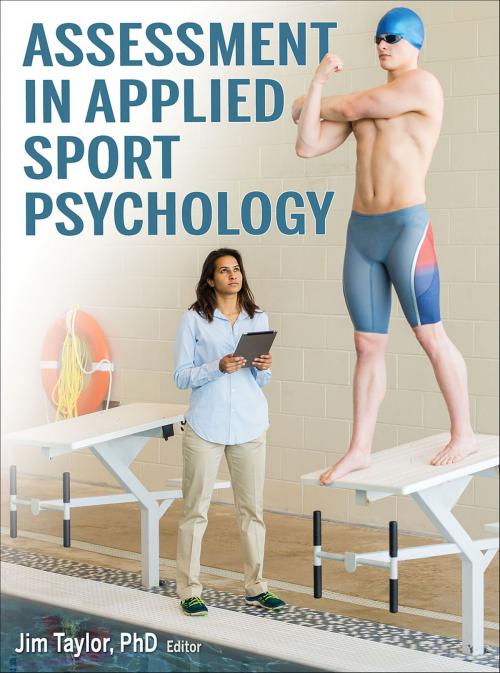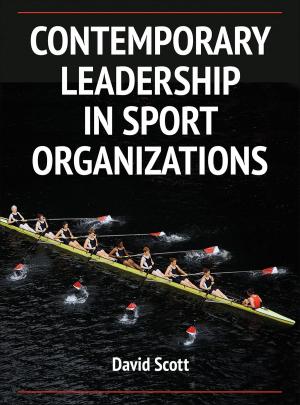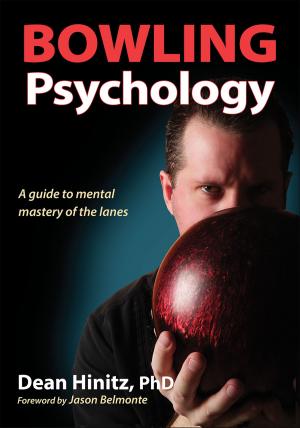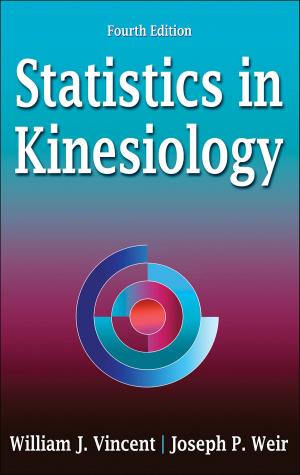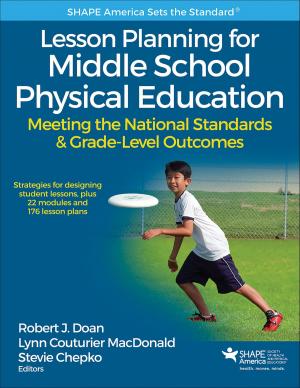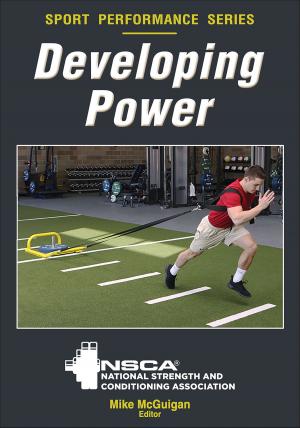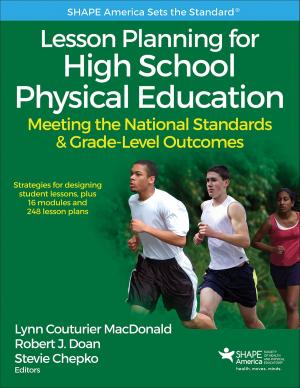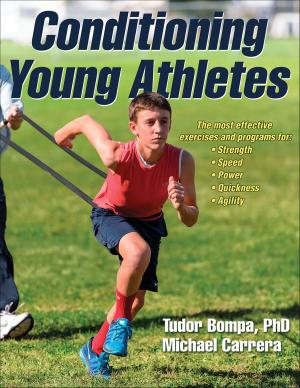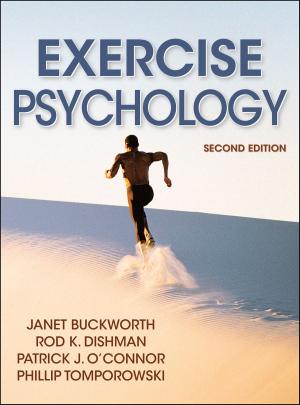| Author: | Jim Taylor | ISBN: | 9781492586111 |
| Publisher: | Human Kinetics, Inc. | Publication: | August 9, 2017 |
| Imprint: | Human Kinetics, Inc. | Language: | English |
| Author: | Jim Taylor |
| ISBN: | 9781492586111 |
| Publisher: | Human Kinetics, Inc. |
| Publication: | August 9, 2017 |
| Imprint: | Human Kinetics, Inc. |
| Language: | English |
Assessment in Applied Sport Psychology is a comprehensive resource that offers both students and professionals the opportunity to hone their skills to help their clients, starting with the initial consultation and lasting through a long-term relationship. In this text, Jim Taylor and a team of sport psychology experts help practitioners gain a deep understanding of assessment in order to build trusting relationships and effective intervention plans that address the needs and goals of their clients.
Part I of Assessment in Applied Sport Psychology covers topics such as the importance of assessment, the appropriateness of qualitative and quantitative assessment, ethical issues that can arise from assessment, and the impact of diversity in the use of assessment. Part II introduces readers to six ways that consultants can assess athletes: mental health screening, personality tests, sport-specific objective measures, interviewing, observation, and applied psychophysiology. Chapters in this section explain the strengths and weaknesses of each approach—for example, when traditional pencil-and-paper and observation approaches may be more appropriate than interviewing—and offer consultants a more complete toolbox of assessments to use when working with athletes. Part III addresses special issues, such as career transition, talent identification, and sport injury and rehabilitation. One chapter is devoted to the hot-button issue of sport-related concussions.
Tables at the end of most chapters in parts II and III contain invaluable information about each of the assessment tools described, including its purpose, publication details, and how to obtain it. Chapters also contain sidebars that provide sample scenarios, recommended approaches, and exercises to use with clients.
Assessment in Applied Sport Psychology works toward two main goals. The first is to help consultants gain a complete understanding of their clients through the use of a broad range of assessment tools. The second is to show consultants how to ethically and effectively use assessments to develop a comprehensive understanding of their clients, thus enabling them to assist their clients in achieving their competitive and personal goals.
Assessment in Applied Sport Psychology is a comprehensive resource that offers both students and professionals the opportunity to hone their skills to help their clients, starting with the initial consultation and lasting through a long-term relationship. In this text, Jim Taylor and a team of sport psychology experts help practitioners gain a deep understanding of assessment in order to build trusting relationships and effective intervention plans that address the needs and goals of their clients.
Part I of Assessment in Applied Sport Psychology covers topics such as the importance of assessment, the appropriateness of qualitative and quantitative assessment, ethical issues that can arise from assessment, and the impact of diversity in the use of assessment. Part II introduces readers to six ways that consultants can assess athletes: mental health screening, personality tests, sport-specific objective measures, interviewing, observation, and applied psychophysiology. Chapters in this section explain the strengths and weaknesses of each approach—for example, when traditional pencil-and-paper and observation approaches may be more appropriate than interviewing—and offer consultants a more complete toolbox of assessments to use when working with athletes. Part III addresses special issues, such as career transition, talent identification, and sport injury and rehabilitation. One chapter is devoted to the hot-button issue of sport-related concussions.
Tables at the end of most chapters in parts II and III contain invaluable information about each of the assessment tools described, including its purpose, publication details, and how to obtain it. Chapters also contain sidebars that provide sample scenarios, recommended approaches, and exercises to use with clients.
Assessment in Applied Sport Psychology works toward two main goals. The first is to help consultants gain a complete understanding of their clients through the use of a broad range of assessment tools. The second is to show consultants how to ethically and effectively use assessments to develop a comprehensive understanding of their clients, thus enabling them to assist their clients in achieving their competitive and personal goals.
